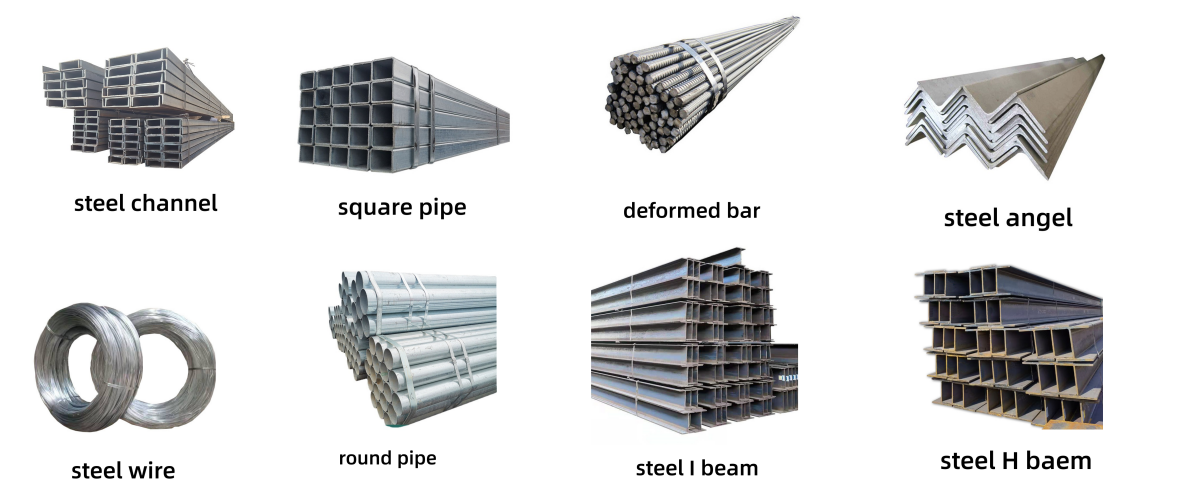Types And Models Of Steel, And What Are The Four Major Categories Of Steel?
1、 What are the types of steel
1. 40Cr, 42CrMo, etc.: Refers to alloy structural steel, which has excellent high-temperature strength and fatigue resistance, and is commonly used to manufacture important components of large mechanical equipment. The international standard steel model ASTM A3 is an American standard ordinary carbon structural steel, which has moderate mechanical properties and is commonly used in the manufacturing of ordinary structural components.
2. The main types of steel include special carbon structural steel, carbon tool steel, carbon spring steel, alloy spring steel, alloy structural steel, ball bearing steel, alloy tool steel, high alloy tool steel, high-speed tool steel, stainless steel, heat-resistant steel, as well as high-temperature alloys, precision alloys, and electrothermal alloys.
3. E value: 26 for general models and those with a, 44 for those with b, and 24 for those with c. Each length unit is in millimeters. Steel length dimensions refer to the most basic dimensions of various types of steel, including length, width, height, diameter, radius, inner diameter, outer diameter, and wall thickness.
4. Steel is generally divided into four categories: profiles, plates, building materials, and pipes. The materials of profiles and plates are mainly classified as Q235B, Q345B, and Q355B, while the main material of building materials is HRB400E, and the material of pipes is also mainly Q235B.

The types of profiles include H-shaped steel, I-shaped steel, channel steel, and angle steel.
5. Special steel: refers to the special steel used in various industrial sectors, such as automotive steel, agricultural machinery steel, aviation steel, mechanical manufacturing steel, heating furnace steel, electrical steel, welding wire, etc. At the same time, the specifications of different welded pipe products are also different, usually expressed in nominal diameter.
2、 How to distinguish the types and models of steel
1. According to different uses and requirements, steel can be divided into various types and models. Carbon steel classified by chemical composition: Steel with a carbon content between 008% and 11%, mainly used for manufacturing mechanical parts, wheels, tracks, etc.
2. Classification explanation of steel grade representation method in China: 1. Carbon structural steel is composed of Q+number+quality grade symbol+deoxygenation method symbol. Its steel grade is prefixed with “Q”, representing the yield point of the steel, and the following numbers represent the yield point value, in MPa. For example, Q235 represents the yield point( σ s) 23 MPa carbon structural steel.
3. Steel is divided into four types: profiles, plates, building materials, and pipes. Among them, profiles and plates can be classified into Q235B, Q345B, and Q355B, while building materials are HRB400E and pipes are Q235B. The types of profiles can be divided into H-shaped steel, I-shaped steel, and so on.

4. Forged steel; Cast steel; Hot rolled steel; Cold drawn steel. Steel classified by metallographic structure in annealed state: ① hypoeutectoid steel (ferrite+pearlite); ② Eutectoid steel (pearlite); ③ Steel precipitation from eutectic steel (pearlite+cementite); ④ Lainitic steel (pearlite+cementite).
5. Cold formed steel: a type of steel formed by cold bending steel or steel strips. High quality profiles: High quality round steel, square steel, flat steel, hexagonal steel, etc. b. Sheet metal; Thin steel plate: A steel plate with a thickness of 4 millimeters or less. Medium and thick steel plates: Steel plates with a thickness greater than 4 millimeters.
6. The number represents the yield point value, for example, Q275 represents a yield point of 275Mpa. If the letters A, B, C, and D are marked after the grade, it indicates that the quality level of the steel is different, and the amount of S and P decreases sequentially, while the quality of the steel increases sequentially.